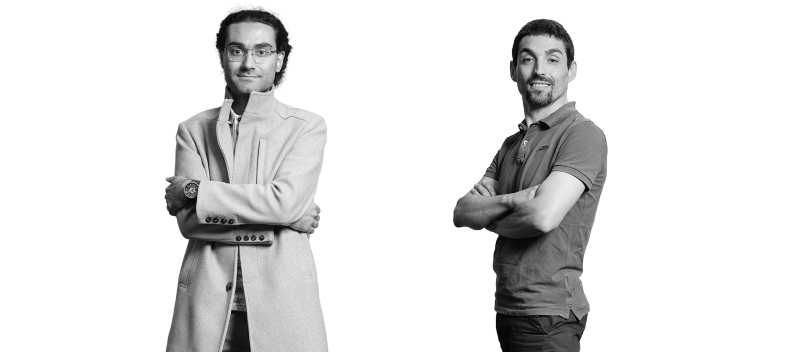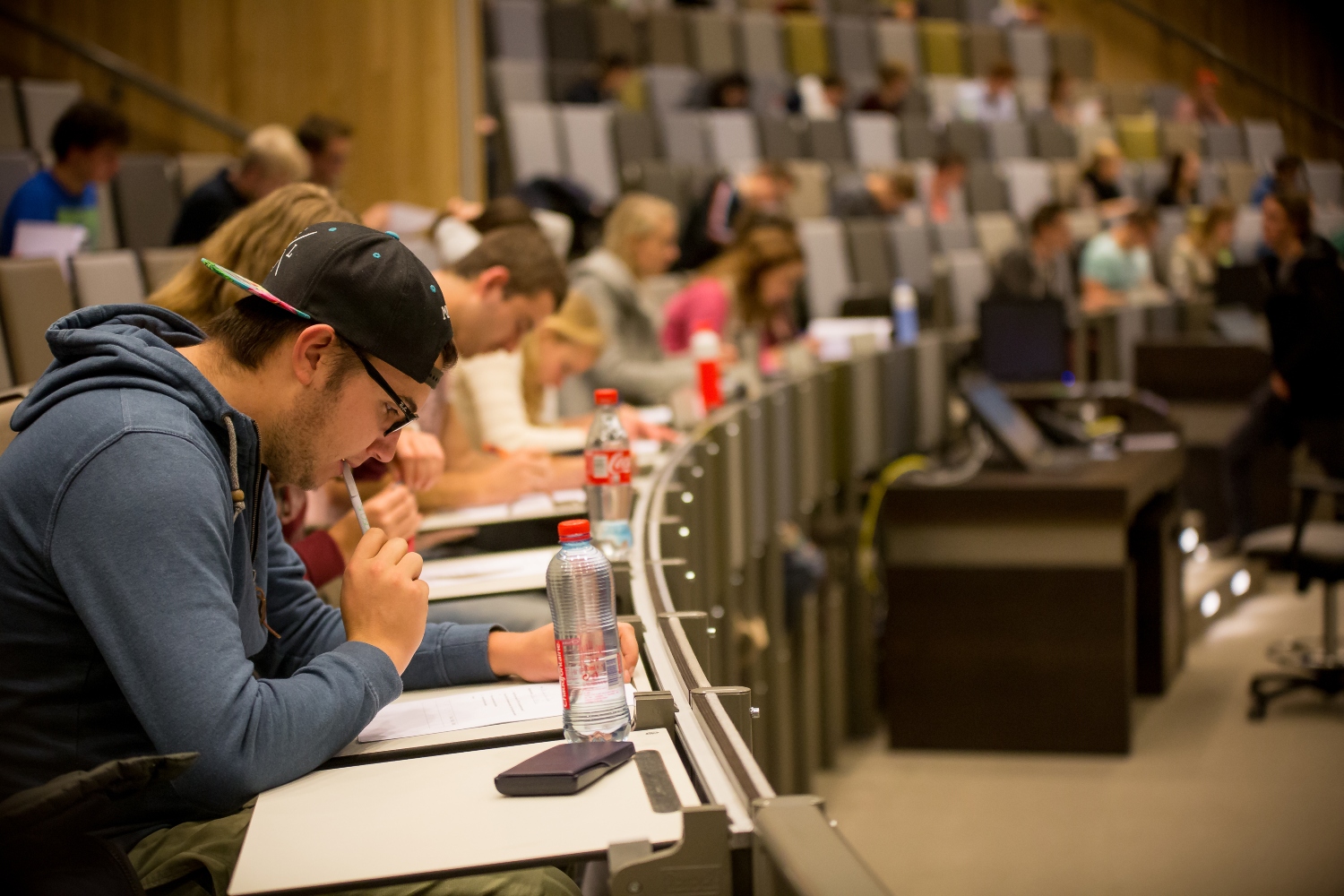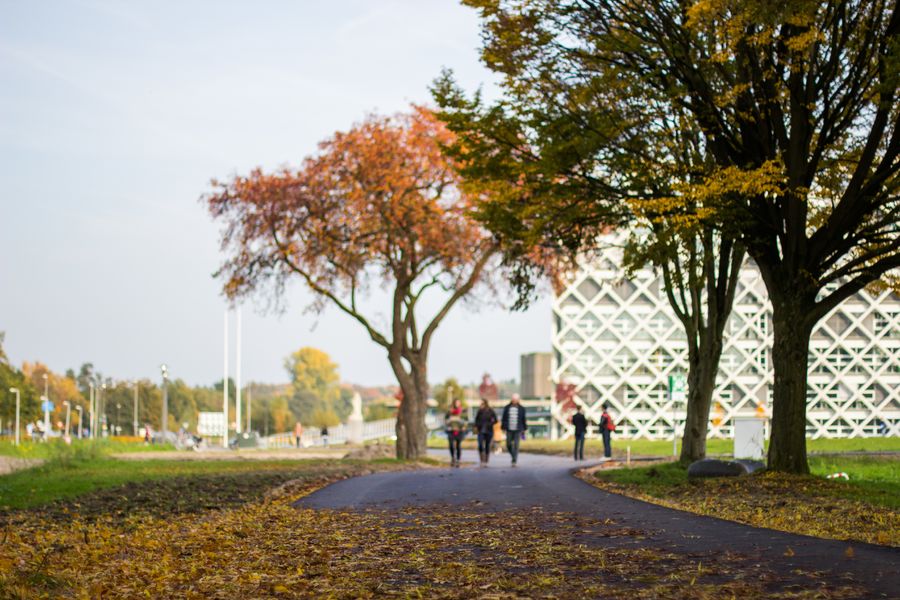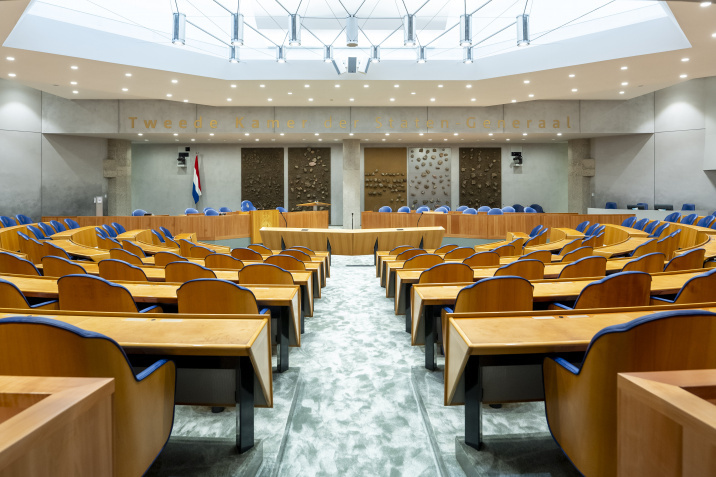Around 2000 staff and students joined the protest on 14 April against the nationwide education cuts. The long march from the campus to the town centre had the support of the FNV trade union and was organized by WUR folk. People who support the Palestinian cause were also given the opportunity to share their views. To surprise of some.
Mehran Takallo (PhD candidate in Microbiology) and his colleagues kept brooding about it. They came to the protest to voice their opposition to the cuts but discovered the pro-Palestinian cause was also on the programme. In a letter to the editors of Resource, they expressed their concern about this political symbolism, which they hadn’t expected. The letter writers argued for transparency in future demonstrations so participants can choose what to give their support to. They think the focus should be kept on the core message — protecting research and education. Livio Carlucci, a lab employee in the Environmental Technology department, was involved in the organization. He talks to Mehran about the issue.
Mehran: ‘Many colleagues didn’t feel represented, or even felt deceived. Despite the fact that some support the pro-Palestinian activists. They had turned up for a protest against the cuts. There was nothing in the communication about other causes. Some left the demonstration because they felt they had been lied to. It’s not about the political standpoints, it’s about the mixed message. In the current political climate in the Netherlands with the PVV (far-right party, ed.) in power, the link between the pro-Palestine movements and the cuts could be used to make the policy even stricter.’
Livio: ‘I think that the cause was one, supported by different prospectives . For example, there was a speech by someone from JOPS (a WUR department for people at a disadvantage in the labour market, ed.). Like the people at JOPS, Wageningen for Palestine also wanted to share some effects of the budget cuts. Firstly, the cuts are mainly affecting the social sciences, as we already experience also in Wageningen, where most of them study or work, and that is precisely where critical thinking and activism often start. Secondly, the money saved by the cuts will be spent on defence, including investments in the Israeli industry.’
Mehran: ‘I understand what you are saying but I don’t think you can mix all this in a single demonstration of this nature — certainly not without any communication. This way, we could have talked about veganism or LGBTQIA+ rights, things I totally support and would be prepared to demonstrate for, but then as a clear-cut issue. If you have too many “flags” and opinions to a protest not meant for intersectionality, that undermines the main message.’
Livio: ‘I realize we could have done better in terms of communication. But in the way of these things, the final list of speakers was only known a few days before the protest. In addition, on 1 April we had a meeting about the demonstration with 80 WUR people, where I wore a keffiyeh (Palestinian scarf, ed.) and made the connection between the cuts and military financing. Someone asked explicitly whether we were allowed to bring Palestinian flags and I said “yes”. No one objected then. Incidentally, on a day like that we can’t control who brings what flags. But as the organizers, we do decide who the speakers are on the stage. And I still stand by that line-up. I don’t think there were different messages — everyone there was against the cuts, but each from their own perspective.’
Mehran: ‘A public announcement of the speakers would have helped, because now a lot of people thought they had turned up for one cause whereas they were unwittingly contributing to another cause. That makes them feel they were deceived.’
Livio: ‘What would have helped you in terms of communication?’
Mehran: ‘For example, you could have used posters or social media to share the programme of speakers, or you could have made it clear that Wageningen for Palestine was one of the organizers. I understand why you have so much sympathy for pro-Palestinian activism, but having Palestinian flags on display can undermine all your efforts in the eyes of the right-wing PVV politicians who are now in power.’
Livio: ‘I’m not sure that is the case. The government’s policy is already hitting universities really hard, probably also happy to punish places where a lot of opposition to them exists. I believe strongly in the concept of intersectionality, the idea that various oppressed groups should join forces to fight injustice. This Dutch government is endangering a lot of things, not just education. If people from the education sector, activists against genocide, people from the LGBTQIA+ community, the unemployed and pensioners can join forces to fight back, that would be great. I would also be pleased to see the red squares (symbol of opposition to the cuts, ed.) at the next Palestine protest, or rainbow flags at the next strike on 10 June.’
Mehran: ‘Of course I too have strong views on many different issues. I could have brought along four different flags, but that was not the right day for it. Politicians don’t care about our feelings. In Iran, we were shot at in protests and friends of mine were murdered. It’s a tough and complicated environment, so we need to be smart and make sensible choices. I hope this dialogue will help with subsequent demonstrations because at the moment the atmosphere in many groups is not very positive. If you make smarter choices, you can get more people joining in support of the causes you care about: Palestine, the environment, the cuts and many other issues.’

 Mehran Takallo (left) and Livio Carlucci. Photo’s Guy Ackermans
Mehran Takallo (left) and Livio Carlucci. Photo’s Guy Ackermans 


Thank you to the organizers for listening to the input and being open-minded about the feedback. Personally, I am sharing the point of view of Mehran. One clear, graspable strike message is most powerful. For sure though, any type of marching against the cuts is better than none.
I agree with Mehran: don’t mix the issues. Don’t assume that everyone who agrees on issue A also agrees on issue B. There is too much “groupthink” nowadays, and this mixing of messages is a symptom of it.
I very much agree with the standpoint of Mehran. Protesting is a big step and people in a demonstration are united in their decision to raise their voice about a specific issue. As Mehran explains well, there are several other topics we care about, but please let everone decide what to associate with or not and when and how. I will certainly leave as soon as a demonstration becomes a mix-up for different topics.